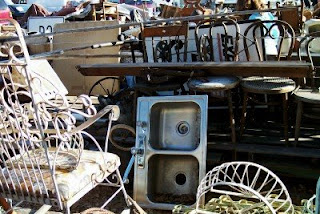PEG Ratio - Kaminis Yield Adjustment (PEG-KYA)
The Price-to-EPS-to-Growth Ratio (PEG) seeks to value a stock relative to growth expectations and is useful for investors seeking Growth at a Reasonable Price (GARP). The measure is used to value growth stocks. In the case of a growing company that also pays dividends (a sort of hybrid), the measure fails to incorporate the portion of capital return from the dividend yield.
The paying out of dividends weighs on growth for companies that can readily find it. It is also a substitute capital use (return to shareholders) for a firm that is considered better off not investing toward growth that may be beyond its reach or better suited for other firms. Investors can make the capital investment decision for themselves. For instance, it makes no sense for a company like McDonald’s (NYSE: MCD) to engage in the development of a new electronics product, especially since I can buy Apple (Nasdaq: AAPL), a top notch producer of novel electronics, myself.
Analysts’ earnings models incorporate the drag of the dividend in that growth is tempered (or saved for some) by that other use of cash versus investment in (or destruction of) the business. Still, dividend payouts affect the price of a stock as well, especially when value is largely in current equity, since a fractional portion of its total value is being paid out; and that would lower the P/E ratio to meet the lower growth outlook.
Still, assuming a company can maintain a dividend yield level and P/E ratio level as it grows means a certain return results to the investor. This is what matters, and why my adjustment makes sense. Perhaps this is most pure when the PEG ratio is 1.0 and assumed to stay that way. So, why not add back the dividend yield to the capital growth return expectation or the analysts’ five-year average annual growth forecast, since it contributes to total return just the same? That is exactly what I seek to do in my Kaminis Yield Adjustment to the PEG ratio. Let’s call this the Kaminis Yield Adjusted PEG Ratio or PEG-KYA©™ - this is hereby copyrighted and trademarked, along with all variations and uses including for forecasting target prices for stocks.
Perhaps this argument cannot hold forever as companies age, but what argument can? If it can hold for five years, the length of the growth forecast, then the valuation metric should be valid and useful.
Incorporating the Kaminis Yield Adjustment (KYA) to the PEG Ratio The process is rather simple. All you need to do is to first consider the five-year average annual EPS growth forecast as a capital appreciation or return estimate. Since the dividend yield also contributes to total return, simply add the dividend yield to the five-year growth forecast or the denominator of the PE/G ratio. This gives us a total return estimate, which we can then compare to the P/E ratio value. It’s going to give credit to a company for its dividend payout, and more accurately reflect value, especially in the case of hybrid growth/dividend payers. This measure can also be used to estimate future value and to forecast target prices. I’ll produce a second article to help investors to do that. Look for additions and corrections within the comments of this blog post.
Please see our disclosures at the Wall Street Greek website and author bio pages found there. This article and website in no way offers or represents financial or investment advice. Information is provided for entertainment purposes only.

Labels: Editorial, Editorial-2013, Editors_Picks, Editors-Picks-2013-Q3, Educational, Insightful, Novel-Ideas, Trademarked-Copyrighted, Wall_Street_101






















